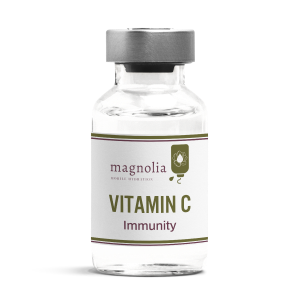Vitamin C
Vitamin C, also known as ascorbic acid, is a water-soluble vitamin that plays an important role in many bodily processes. It is primarily obtained through the diet, and can be found in many fruits and vegetables, particularly citrus fruits, berries, and leafy greens.
Vitamin C is essential for the formation and maintenance of connective tissue, such as skin, tendons, and bones. It is also involved in the production of collagen, a protein that is important for the health of skin, hair, and nails. In addition, vitamin C is an antioxidant, which means that it helps protect the body against damage from harmful molecules known as free radicals.
Vitamin C supplements may be used to treat vitamin C deficiency, a condition that can cause a range of symptoms, including fatigue, weakness, and joint pain. In addition, some studies have suggested that vitamin C supplementation may have other health benefits, such as reducing the risk of cardiovascular disease and certain types of cancer, as well as improving immune function.
- Institute of Medicine (US) Panel on Dietary Antioxidants and Related Compounds. (2000). Dietary reference intakes for vitamin C, vitamin E, selenium, and carotenoids. National Academies Press (US).
- Carr, A. C., & Maggini, S. (2017). Vitamin C and immune function. Nutrients, 9(11), 1211.
- Lykkesfeldt, J. (2019). Vitamin C. In Modern Nutrition in Health and Disease (pp. 315-327). Lippincott Williams & Wilkins.
